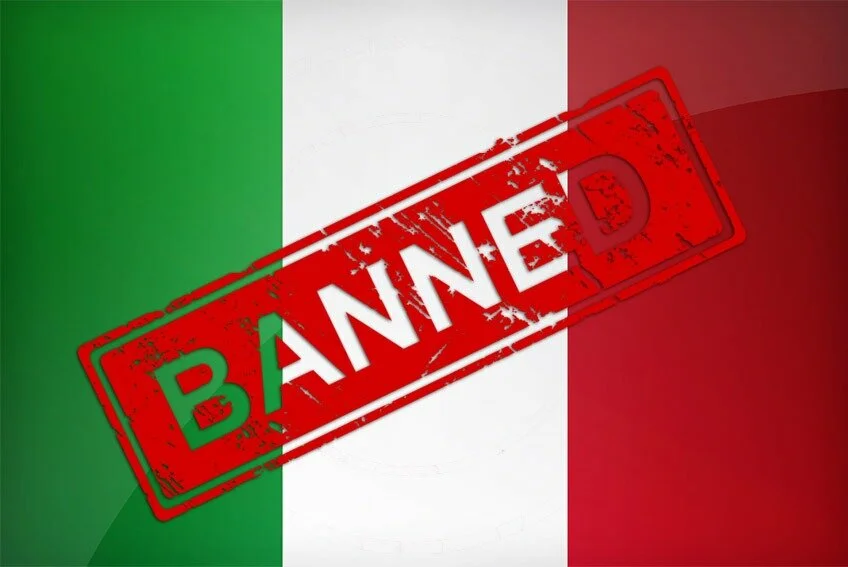The Dignity Decree: a scourge for businesses or the liberation from a scourge?

- Is the ban on advertising really bad for everyone in the industry?
- Is the Italian gambling market actually dead?
- What are the internal mechanisms of the ongoing process and its effective terms?
- How can operators and affiliates adapt?
- What to expect now?
In recent years the Italian casino operators seemed like a happy and prosperous bunch. Despite strict government regulations, but perhaps just because of them, some have become increasingly important and productive both online and offline. Once licensed, they also became more visible and trusted, largely squeezing out the illegals and cleaning up the industry.
Even in the public administration they were more than happy. Billions went to the Treasury – over 2% of total tax revenues – operators were also easier to control through ICT tools and the meticulous licensing process. And while not an ethically popular service for a society like ours, gambling and betting often sponsors beloved sports clubs but also some grassroots sports movements; and maintain a healthy horizontal business structure through small businesses and thousands of employees in total.
Lately, however, the sector has undoubtedly been shaken by the new regulatory initiatives of the Government. And the last days of July proved to be even more heated for Italian politics, and also directly linked to the online gaming industry and its ability to invest and educate. Ultimately also for its long-term prospects of operating adequately.
The blanket ban on advertising covers any type of content relating to gambling, betting or games of chance (with some notable exceptions, see below) and has caught virtually the entire industry unprepared. Not so much because it was the first real legislative move by the new Italian government, rather because of the drastic ways and timing with which the issue was tackled.
A political issue
The adoption of a Legislative Decree is normally foreseen in cases of technical inadequacy or lack of time, typically for urgent and serious situations, since it circumvents the traditional legislative procedures and imposes immediate legal effects. In this case, the M5S–Lega government is still trying to justify the urgent need to fight precariousness and relocation with a DL. While the fight against gambling addiction (several times underlined by the Premier as gambling addiction) is introduced as a topic only with a single article (9) in the "Dignity Decree" which now entered into force on 13 July 2018. However, it is something on which the Minister of Labor and of economic development Luigi di Maio, its most rigorous champion and supporter, seems intransigent.
Naturally, all Italian-licensed operators are unanimous in their disapproval of the legislation, especially after years of escalating regulations that ultimately seemed capable of staving off much of the illegal and predatory practices in the industry. Their firm belief that such an initiative could funnel players to unauthorized operators is supported by both left-wing opposition leaders and even some of their government allies. Giorgia Meloni announced that if their proposals were not accepted, Fdi would vote against. And although you also stressed the need to take measures against the extraordinary visibility of gambling, you spoke of incentives for establishments to give up slot machines, localization in specialized areas and other measures and funds to fight gambling addiction .
More than 150 amendments have been proposed to the Joint Finance-Labour Commissions for Article 9 alone, and around 1,000 total amendments have been proposed. Thus it is easy to understand why the vote on a final version does not materialize in the short term. The issue is fast becoming a major stumbling block for the government, especially as attempts are being made to address labour, tax, communications and health issues in a single motion. Naturally, all socio-economic stakeholders are demanding better solutions and there is a sense of tension, even among key members of government. Interior Minister and Northern League leader Matteo Salvini has tried to avoid the issue so far but had to intervene following the recent protests of some entrepreneurs, simply declaring "at the end of the journey we will see who was wrong and who was right". The Dignity Decree thus also reveals some political differences between MS5 and Lega, but it is certainly not enough for a more significant clash.
The disunited opposition
In the past two months, since its plan on the issue was announced, the government has encountered significant but scattered resistance beyond the world of politics or finance. In a declaration jointly, all major professional football, basketball and volleyball leagues (both men's and women's) have underlined their concern that the drastic measures could undermine the competitiveness of almost all professional and amateur levels of Italian sport, given the financial support received from the gaming and betting operators. And even more by comparing it at an international level.
A pair of encounters and subsequent reactions more than 600 Venetian entrepreneurs have had public resonance at a national level, directly accusing the Di Maio plan of increasing constraints and costs on fixed-term contracts, thus inhibiting their corporate competitiveness and limiting flexibility in the labor market. Even on the other end of the spectrum they agree: several hundred workers at the Nestlé plant in Benevento have protested publicly after the company decided to no longer count on them for seasonal and temporary hires after the introduction of the Decree.
To close the circle, on 26 July a representation of the three main trade unions met with some members of the Association of Lawful Gaming (As.Tro) in an attempt to collaborate and propose effective alternatives. But above all to coordinate their efforts in an attempt to make themselves heard by the government, since there has never been any willingness on its part to stop and discuss the issue with any representative of the Social Partners. While in its current form the Decree constitutes a simple prohibition that could lead the sector to fall back into illegality.
What the numbers reveal
As admitted by the MEF undersecretary, no other EU country would have introduced a similar ban so far and at the moment it is difficult to evaluate exactly the financial and operational effect of the ban on the gaming sector, on the advertising sector and on the Treasury in particular.
On the other hand, in a country where the level of taxation on gambling is double that of France and the United Kingdom, and four times that of Spain and Germany, the government hopes to neutralize the reduced revenue from online gambling taxes with higher taxation on slots and land-based bets. From one point of view it is an understandable move: out of almost 102 billion euros total bets for 2017 , the taxman earns about 10 billion in taxes. But with only 27 of the 102 billion spent online, the state earns just over 300 million in the form of taxation of online transactions, just above 1% of total turnover.
How come? Simply because the RTP is much higher in networked games and slots than land-based operators. Previous Italian governments have chosen to reduce payout limits to a minimum of 70%, while online operators must guarantee at least 85%. And most of them are over 90%, and that value most often hovers near 95%. This is the simple reason why this share of the turnover brings significantly lower tax revenues to the state. Once you understand the effect these changes have had, it is no wonder that the current government is pushing to tax physical dealerships even more to "counterbalance" the effects of the Legislative Decree called by many a hypocritical move.
The current provisions leave the responsibility for organizing the activity of offline operators (bars, betting offices, slot rooms) to the Municipalities, while the infamous Customs and Monopolies Agency (AAMS) still controls their tax flows. At the same time, digital operators are faced with a total ban on advertising with no possibility of planning their operations sustainably.
Does dignity apply to everyone?
What is even more blatant about the ill-advised attempts to combat a gambling addiction is the fact that national and local lotteries are excluded from the ban, as are the “safe and responsible gaming” and AAMS logos.
And while the latter should not be considered advertisements but sources of information, the reason to save money on drawing games would be the fact that they do not offer an immediate win or loss but rather a potentially deferred prize.
This mainly leaves the National Lottery, as well as Lotto (operated by Lottomatica, 52% owned by DeAgostini) and SuperEnalotto (operated by Sisal).
What will happen now
- Cosa significa tutto questo per i nuovi casinò sul mercato?
Article 9 specifies that no new sponsorship and publicity contracts could be entered into at this point. The contracts in force have been given an extension which cannot in any case cause them to take effect beyond 13 July 2022, one year after the initial publication of the Decree. After January 1, 2022, in any case: no new events, products or services.
Google went compliant with almost immediate effect, and what we've already seen on the search engine is that AAMS licensed operators are already sliding down the local search results list. Of course, there is no mention of any advertisements for them at the top. While operators not registered in Italy are starting to get noticed more in the results. As well as some potentially objectionable and/or foreign sites.
The same will also happen on Facebook (and Instagram) as regards not only announcements and advertising campaigns, but also fan pages and any page or even indirect link. Some operators have already started greeting their customers and followers.
- Che significato può avere questo per i nuovi affiliati sul mercato?
What is important to understand would be how and how efficiently the Legislative Decree will affect legitimate and sanctioned sources of information such as the platforms of the operators themselves, the affiliated pages, the various information blogs and all the messages related to them but at the same time not intrusive in terms of dimension global network.
It may be sufficient to change the TLDs, the top-level domains of websites. Some companies may even have to move their registered office. Fortunately, despite Google's timely actions, quality affiliate sites are the only ones that remain visible and that in itself is good news for the segment. This could even prove to be the safest and most direct way to access operator sites, as well as inform and grow your customer base. Thus the core business seems far from being fatally threatened, but may need to undergo some superfluous changes. Contrary to government wishes, this process could even drive more traffic to online and mobile services than before.
There is one certainty: the fight for the Italian gaming market is by no means over. Individual operators and some class actions already have a number of legal arguments to raise (such as EU rules on the ability of member states to "restrict the movement of goods and services"). Other operators and socio-economic factors are at work, albeit still in an unconnected way.
Meanwhile, parliamentary discussions will continue until August 2, while the Decree will be examined in the Senate on August 6. If all this goes on for long, there is already talk of a motion of confidence in the government. Such is the importance of this legislation as a whole.
After a brief summer break, the deadline looming on the political horizon is 12 September when the Dignity Decree expires. It would perhaps not change the government's plan in practical terms. But perhaps it would be useful in trying to start almost from scratch to build a solution that is functional and more reasonable for all parties involved.
And to avoid a sensational blow to Luigi Di Maio's public image.







